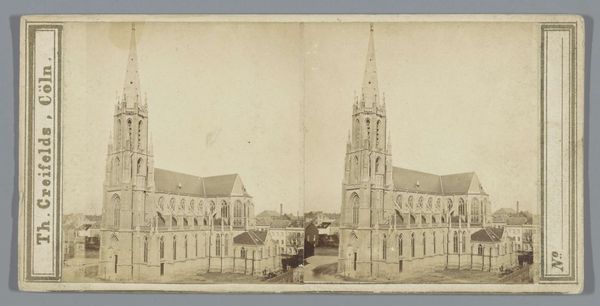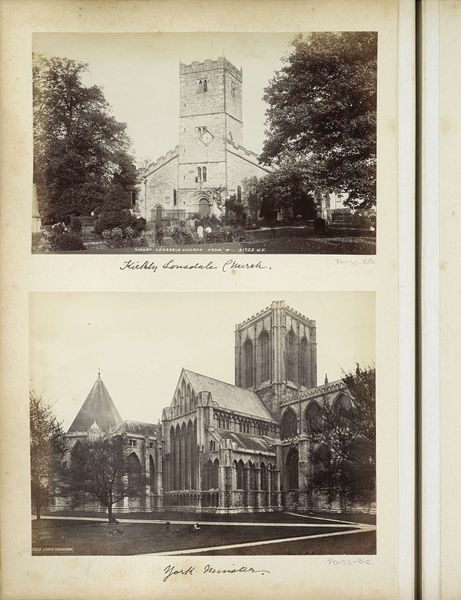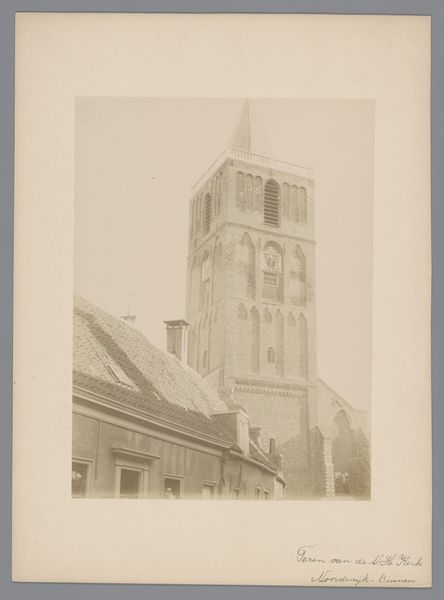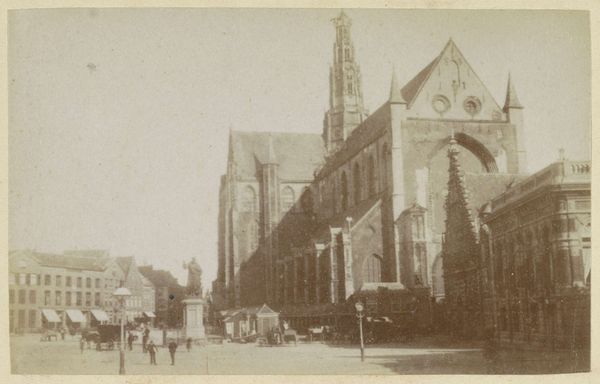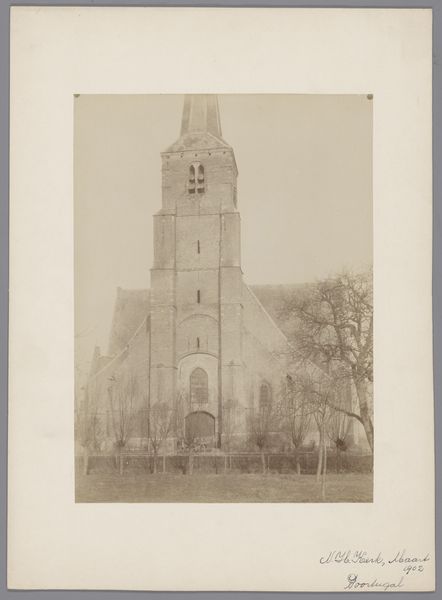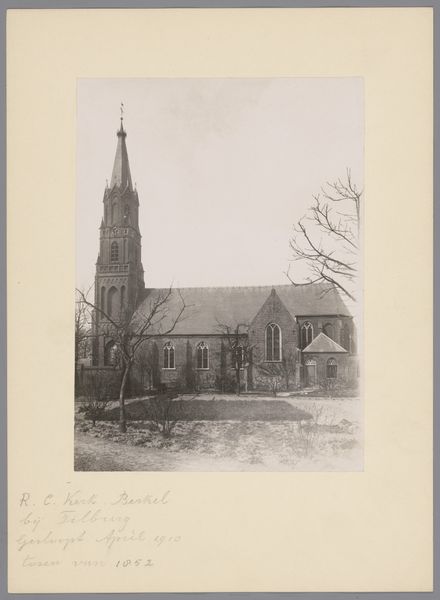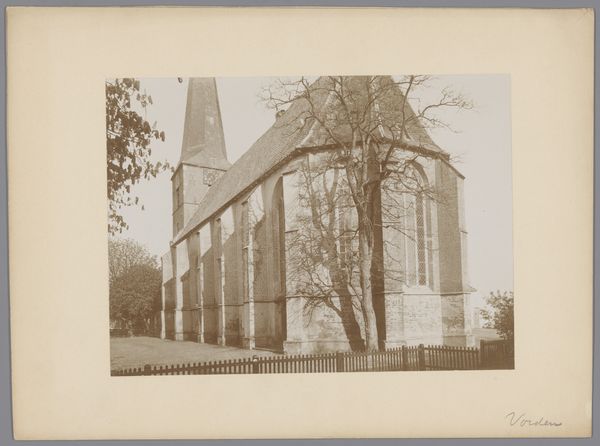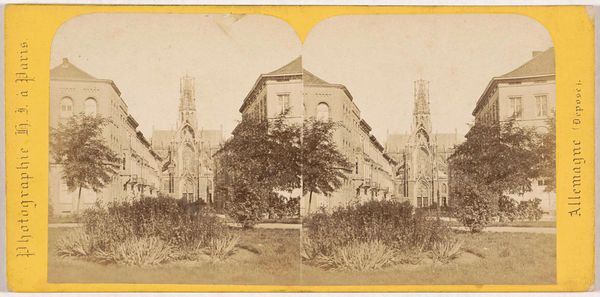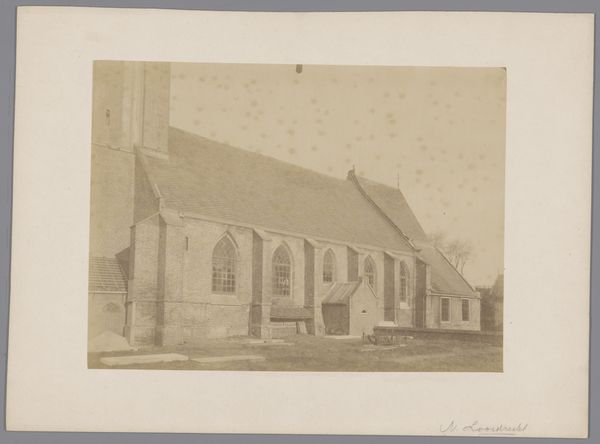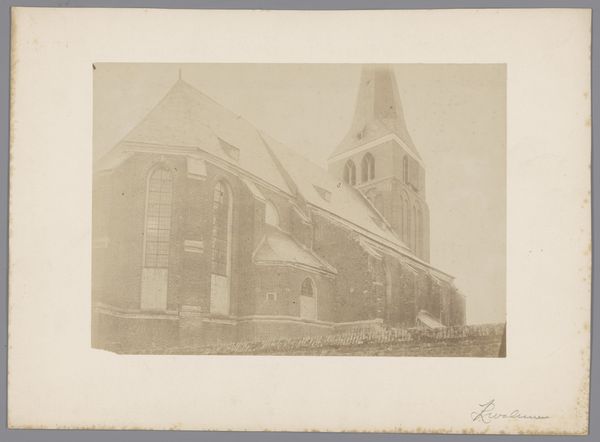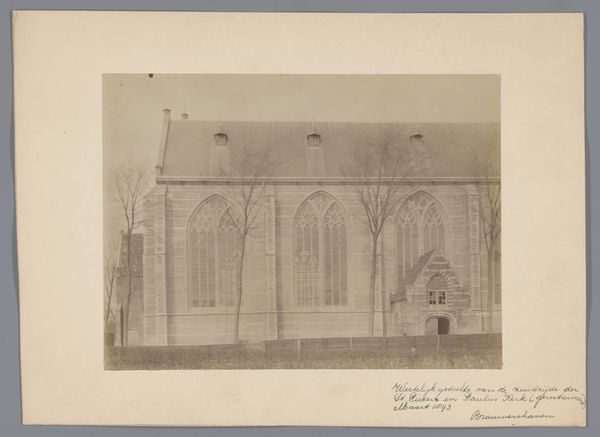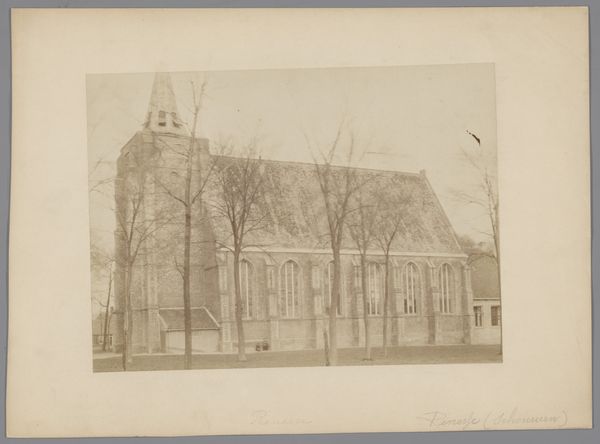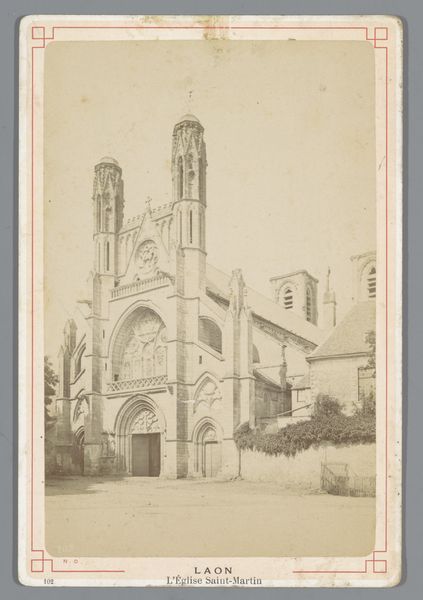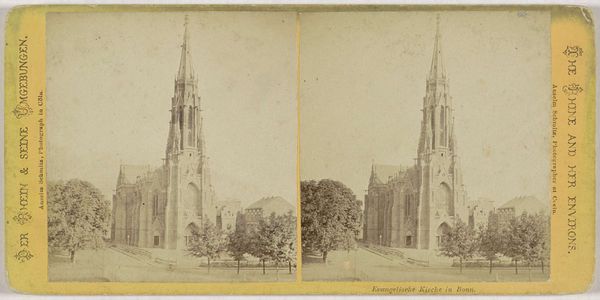
photography, site-specific, gelatin-silver-print
#
landscape
#
photography
#
site-specific
#
gelatin-silver-print
#
realism
Dimensions: height 86 mm, width 176 mm
Copyright: Rijks Museum: Open Domain
This stereoscopic photograph of the Salvatorkirche in Wroclaw was produced in 1878 by Sophus Williams, a photographer based in Berlin. The image presents a detailed view of the church's exterior, emphasizing its neo-Gothic architectural style. This style was very popular in the 19th century and was often associated with the revival of Christian values. The Salvatorkirche was a landmark in Breslau, now Wroclaw, and a symbol of religious life in the city. At the time, the city was part of the German Empire, and the church played a significant role in the local Protestant community. Stereoscopic photography was popular during this period, offering viewers a sense of depth and realism. Images like this served not only as records of architectural landmarks but also as cultural artifacts. These reflected the social values and technological advancements of the time. To fully understand the photograph, we must examine its historical context. Researching the social, religious, and political dynamics of 19th-century Breslau helps us appreciate the image as more than just a depiction of a building; it becomes a window into a specific moment in history.
Comments
No comments
Be the first to comment and join the conversation on the ultimate creative platform.
